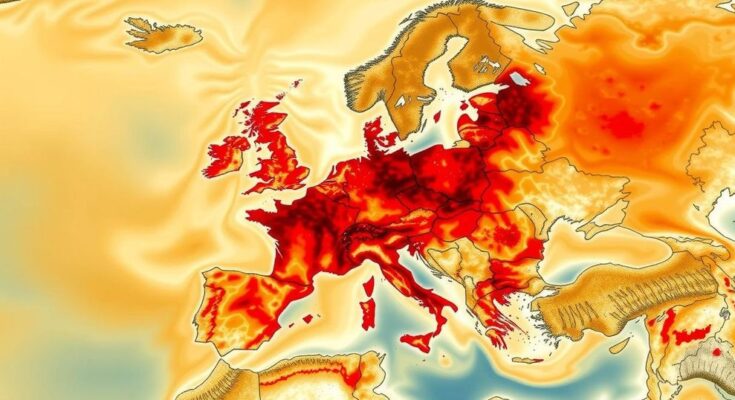EU scientists have announced that 2024 is set to be the hottest year on record, with global temperatures likely to exceed 1.5 degrees Celsius above pre-industrial levels. Extreme weather events globally highlight the critical impact of human-caused climate change, prompting concerns about future heatwaves and disasters. Despite commitments to reduce emissions, global CO2 is projected to reach a record high this year.
According to a report from European Union scientists, this year is projected to be the hottest year on record, with exceptionally high temperatures expected to persist into early 2025. The Copernicus Climate Change Service (C3S) has confirmed that the period from January to November 2024 has established it as the first year in history where average global temperatures exceed 1.5 degrees Celsius above the pre-industrial levels of 1850-1900. The previous record for the hottest year was held by 2023.
The year 2024 has witnessed extreme weather events across the globe, including severe droughts in Italy and South America, fatal floods in regions such as Nepal, Sudan, and Europe, along with deadly heatwaves in countries like Mexico, Mali, and Saudi Arabia. Additionally, devastating cyclones have impacted the United States and the Philippines, with scientific studies confirming that human-induced climate change has contributed to these disasters. Last month was recorded as the second warmest November after 2023.
Julien Nicolas, a climate researcher at Copernicus, stated, “We’re still in near-record-high territory for global temperatures, and that’s likely to stay at least for the next few months.” The continuous rise in carbon dioxide emissions due to fossil fuel combustion remains the primary driver of climate change. While many governments have pledged to achieve net-zero emissions in the future, global CO2 emissions are poised to reach a record high this year.
Scientists are observantly monitoring the potential formation of a La Nina weather pattern in 2025 which may briefly cool global temperatures. However, experts emphasize that such fluctuations will not alter the overarching warming trend instigated by emissions. Friederike Otto, a senior lecturer at Imperial College London, cautioned, “While 2025 might be slightly cooler than 2024… this does not mean temperatures will be ‘safe’ or ‘normal.’”
The report discussed herein underscores a significant aspect of climate science, revealing that the planet is experiencing unprecedented warming, attributed primarily to human activities, particularly the burning of fossil fuels. The monitoring organization, C3S, employs a comprehensive dataset that dates back to 1940, which is scrutinized against historical temperature records going as far back as 1850. This context is critical in understanding the severe impact of climate change, which has been linked to a range of extreme weather phenomena observed in 2024. The recent UN climate talks have further highlighted the urgent need for international cooperation and funding to tackle the ongoing climate crisis.
In conclusion, the data presented by the European Union’s Copernicus Climate Change Service reveal alarming trends in global warming, marking 2024 as the hottest year on recorded history, alongside substantial evidence of humanitarian and environmental crises stemming from climate change. Despite governmental commitments to reduce emissions, the continuous rise in carbon dioxide levels poses substantial challenges. Although potential brief cooling periods may occur, the overall trajectory indicates continued high temperature extremes, urging immediate action to mitigate climate impacts.
Original Source: sightmagazine.com.au




